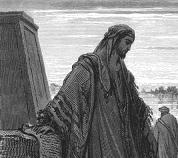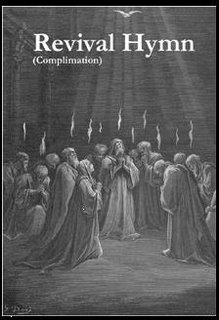Appeared originally in Smith’s
Chats From A Minister’s Library Grand Rapids: Baker Book House, n.d. (1951). Pp. 169-186
(
Excerpted from above)
There is a verse tucked away, we might say, on the last page that Paul probably ever wrote, dictated in a dingy and damp prison at Rome, shortly before the Apostle’s death, which, more than any other one sentence in all his writings, indicates his passionate love for books and especially for
The Book. I refer to the words he wrote to Timothy (II Tim. 4:13)—“The cloke that I left at Troas with Carpus, when thou comest, bring, and the books, especially the parchments.”
Only rarely does the Apostle, in all of his voluminous writings, speak of his university education, or of his intellectual pursuits. Standing before the multitude in Jerusalem he could declare that he was a man who, though born in Tarsus, was brought up in the city of Jerusalem “at the feet of Gamaliel, and taught according to the strict manner of the law of the fathers.” (Acts 22:3.) In the Second Epistle to the church at Corinth (11:6) he says that though he might be rude in speech, yet he was not “in knowledge.” Later to the Galatians, in briefly summarizing his earlier life, he said he had “profited in the Jews’ religion above many my equals in mine own nation, being more exceedingly zealous of the traditions of my fathers.” (Gal. 1:14.)
~~~~~~~~~~~~~~~~~~~~~~~~~~~~~~~~~~~~~~~~~~~~
Mr. Spurgeon preached on this text at the Metropolitan Tabernacle on Sunday morning, November 29, 1863. The first two-thirds of the sermon have to do with Paul’s request for a cloke, and I think that his seven pages on this single clause are the finest pages in the English language on this particular portion of Paul’s writings. It would be a grand thing sometime if one with much leisure and a love for books and a discerning spirit, would give us a great series of volumes in which the very finest things said on each particular phrase in the New Testament were brought together. These are Spurgeon’s words:
“We will LOOK AT HIS BOOKS. We do not know what the books were about, and we can only form some guess as to what the parchments were. Paul had a few books which were left, perhaps wrapped up in the cloak, and Timothy was to be careful to bring them.
Even an apostle must read. Some of our very ultra-Calvinistic brethren think that a minister who reads books and studies his sermon must be a very deplorable specimen of a preacher. A man who comes up into the pulpit, professes to take his text on the spot, and talks any quantity of nonsense, is the idol of many. If he will speak without premeditation, or pretend to do so, and never produce what they call a dish of dead men’s brains—oh! that is the preacher. How rebuked are they by the apostle! He is inspired and yet he wants books! He has been preaching at least for thirty years, and yet he wants books! He has seen the Lord, and yet he wants books! He had had a wider experience than most men, and yet he wants books! He had been caught up into the third heaven, and had heard things which it was unlawful for man to utter, yet he wants books! He had written a major part of the New Testament, and yet he wants books! The apostle says to Timothy and so he says to every preacher, ‘Give thyself unto reading.’ The man who never reads will never be read; he who never quotes will never be quoted. He who will not use the thoughts of other men’s brains, proves that he has no brains of his own. Brethren, what is true of ministers is true of all our people. You need to read. Renounce as much as you will all light literature, but study as much as possible sound theological works, especially the Puritanic writers, and expositions of the Bible. We are quite persuaded that the very best way for you to be spending your leisure, is to be either reading or praying. You may get much instruction from books which afterwards you may use as a true weapon in your Lord and Master’s service. Paul cried, ‘Bring the books’—join in the cry.






